-
Burkina Faso
Ecological revolution in Burkina Faso
 In Burkina Faso, on the edge of the Sahara, more and more farmers are following the precepts of agro-ecology to bring life back to land threatened by desertification.
In Burkina Faso, on the edge of the Sahara, more and more farmers are following the precepts of agro-ecology to bring life back to land threatened by desertification.
With few resources and at no extra cost, this form of agriculture attentive to natural balances provides spectacular solutions to restore the fertility of the soil, but also to improve yields, manage water supplies better, make the country self-sufficient in food production, limit rural flight and restore a less dry climate in this region of the Sahel.
Texts : Guillaume Jan | Photography : Jérômine Derigny
A land threatened by desertification
For several decades, the desert has been encroaching on the Sahel. Woodcutting and soil exhaustion has rendered once fertile land arid. This loss of vegetation cover has serious consequences for the climate, which becomes hotter and drier. And yet, in this region were the population doubles every thirty years, the human pressure is impoverishing the soil at an alarming rate: over-grazing, abusive deforestation to obtain fuel for cooking or provide more land for crops, poor farming practice and recurrent droughts are also causing the erosion of arable land. The result is that nature’s ecological balance is threatened even more. All of this is seriously jeopardising the food security of countries like Burkina Faso, even though 85% of its population live off the land.
When I was a child, my village was surrounded by deep, dense bush. There were antelopes, lions and zebras in abundance. Today, the animals have gone and the vegetation is more and more sparse.”
Madi Sawadogo, farmerThe miracle of agro-ecology
Traditional extensive farming methods (based on the practice of burning off vegetation to gain new land for crops) is no longer possible, such has been the destruction of the savannah over the last few decades. And the soils in the Sahel are too fragile and too arid to bear the aggression of the chemical inputs of so-called conventional agriculture. In addition, even subsidised by the State, these fertilisers and pesticides are expensive to import and have contributed to the growing indebtedness of small farmers. In Burkina Faso, as in Mali or Niger, several farmers’ groups have started to look for solutions to guarantee the fertility of their fields. Turning to agro-ecology, they have been experimenting with simple, low-cost methods that are natural and effective: in one or two seasons, they have doubled their yields.
Ecological farming can multiply our yields, regenerate our soils and guarantee our food sovereignty, whilst also improving our living conditions. For example, we can make our crops more sustainable by retaining rainwater with simple dikelets, the compost we have learned to make generously fertilises the soil and the trees that we are planting hold the moisture in the soil and in the air.”
Madi Sawadogo, farmer